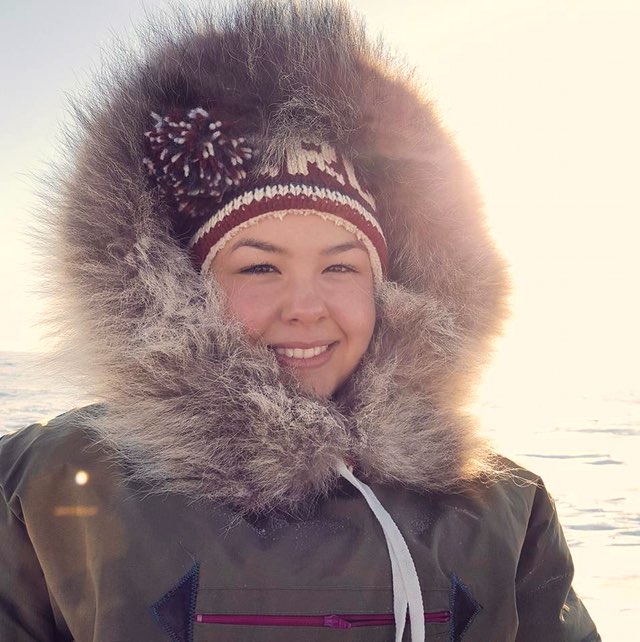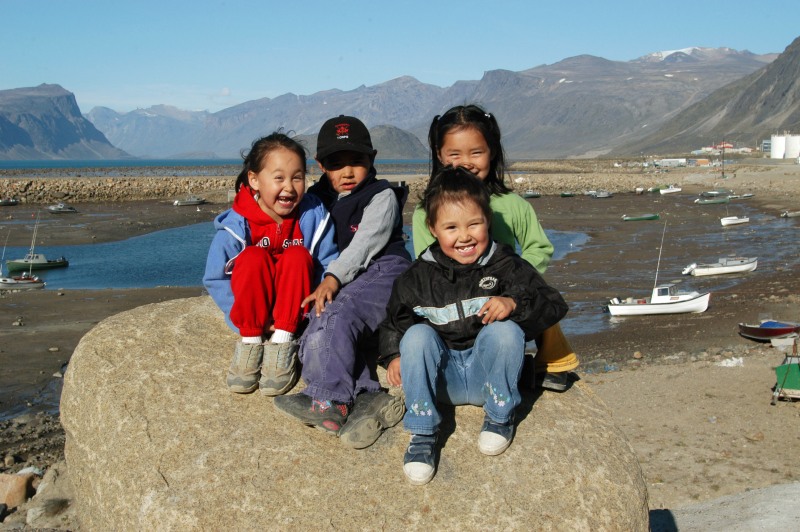In a time when the Canadian Arctic is the focus of energy and trade route exploration, there are human cultural issues that need to be part of the picture as well. Maatalii Okalik, is a young advocate for the ever expanding Inuit youth population and her passion is ensuring all young people of the north will be able to live to the same standards as other Canadians. The 27 – year old is president of Canada’s National Youth Council and her mantra is just that,;“to ensure that Inuit live the same quality of life as fellow Canadians.”

Maatalii Okalik Pres Natl Inuit Youth Council. Maatalii Okalik photo.
Okalik knows the road to Inuit health and education equality will be long and winding and will require hurdling deep – rooted social issues frozen in Canada’s colonial history. Okalik fervently believes that the federal government needs to be more active in revitalizing cultural practices, preserving and facilitating native languages, preventing suicides and upgrading and possibly subsidizing some infrastructure problems.
In Okalik, it appears the Inuit young population will have an inspired advocate for years to come. She was recently bestowed the honor of Indspire Laureate, given to Canadian indigenous professionals and young people demonstrating exceptional achievements in their chosen career. Additionally, Okalik was rewarded with the Qulliit Nunavut Status of Women Council’s Outstanding Young Woman Award!
Arctic Deeply, a northern publication recently interviewed Okalik and she conveyed some pretty informative and interesting thoughts on life in northern Inuit communities. Describing the most pressing concerns and issues of Inuit youth Okalik outlined a basic long – term action plan.
Foremost is the Inuit language -Inuktitut- not being allowed in residential schools. English has been forced upon students therefore degrading the native language of the Inuit people. Okalik contends that federal government in Ottawa should actively push to ensure that Inuit youth should be able to access crucial learning materials in their native language. This would set a basis for equitable education for all Canadians. When the Inuktitut language is watered down the culture will slowly be lost when exposed to the rest of the world.
Secondly, Inuit culture and customs have been identified as an identity crisis currently for Inuit youth. As the youngest, fastest growing population in Canada, Inuit youth are finding cultural practices hard to keep up with. School and work and raising young families impose time and cross – cultural constraints on the continuation of age – old Inuit culture. Youth programming has been seen and proposed as a solution. tradition and modernity need to be woven together more smoothly so to ease the differences between the two.

Inuit children in Pangirtung, Nunavut. Robert Galbraith photo.
The third, and most pressing issue, is suicide prevention in the north within the Inuit population. Inuit suicide rate ranks highest within Canada as well as internationally per capita. Okalik and her colleagues contributed to the national Inuit suicide prevention strategy identifying suicide historical tendencies and plans to control them in Inuit communities.
In all these issues it’s crucial to have Canadians as a whole understand the vast gap in social services whether it be housing, food insecurity, cultural access for youth, education or access to quality and equal health care. With Inuit communities existing on the lower end of the spectrum here, there needs to be help assimilating the people to a better way of life being exposed to them from outside. “To me it just doesn’t make sense for Inuit in our particular communities to be living in Third-World conditions. There should be a priority of Canada to address that inequity. It would be a proactive measure that would prevent some of the dire statistics, including our suicide rates.” states Okalik.
Okalik feels her dreams and definitive career moment will be when all Canadians, including Inuit, enjoy the same quality of life. “I think I’m happiest when I see understanding in someone’s eyes – whether that’s an Inuk youth who learned about the history of colonization, or a federal bureaucrat or high-level minister who decides that this should be a priority and it’s a basic human right.” Then that person might be motivated to try and solve the dilemma and possibly influence policy decisions that might impact Inuit in a favorable manner.
Okalik’s near – term hopes are for the federal government to follow through with the Truth and Reconciliation Commission’s call to action #66 restoring power to indigenous communities all across Canada including most urgently Inuit communities in the Arctic. “The other thing that I think that I’d like to see is the telecommunication of the Canadian Arctic to be at par with southern Canada, including internet and phone. We recognize that these are essential services. It’s not at par in the Arctic. That influences education. It’s really important. Especially when, across the Arctic, we don’t have hospitals in all of the communities. Telehealth for example, is something that’s being explored. We should have access all across the board. As well as internet.”
Lastly Okalik believes that air services across the Nunavut settlements need to become more essential since there are no roads to communities. Many of the social inequities pointed to here are critically impacted by this transportation mode.

